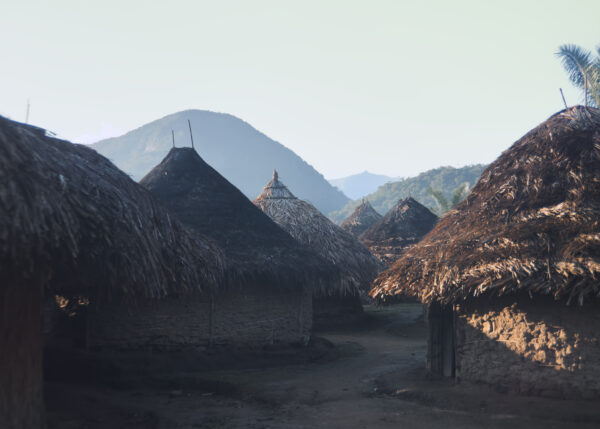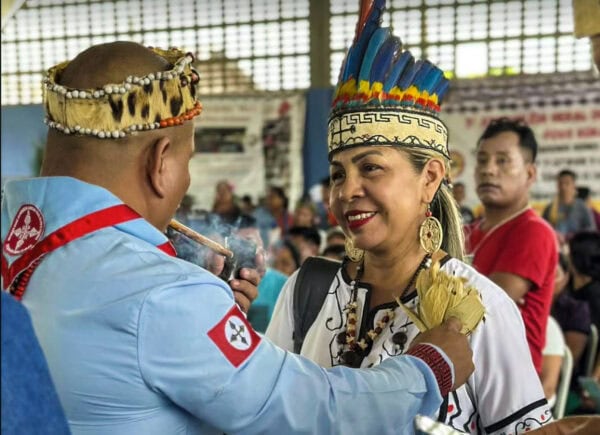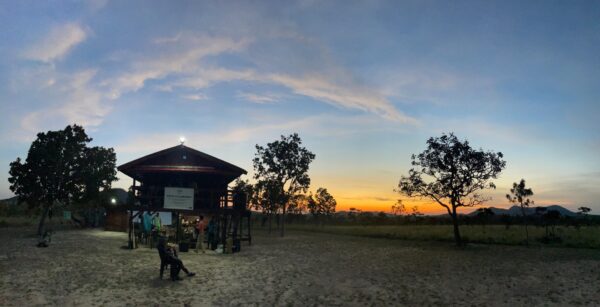On January 25, 2019, responding to several requests for partnership from indigenous communities in Brazil, the Amazon Conservation Team® (ACT®) decided to reestablish itself in the country.
ACT began its work in Brazil at the turn of the 21st century. Through 2011, ACT supported several indigenous groups in mapping their cultural realities and traditional natural resources use practices in the Tumucumaque Indigenous Park (2002), the Xingu Indigenous Park (2004) and the Sete de Setembro Indigenous Lands, as well as in several reserves and protected areas in the northern Brazilian Amazon (2010). All these areas have their demarcation approved by Brazilian federal decree. In 2005, ACT instituted the first course in Brazil for training and certification of indigenous park rangers.
Through 2011, ACT operated as an entity legally established in Brazil under the local name Equipe de Conservação da Amazônia (ECAM). In 2012, due to irreconcilable administrative and institutional disagreements, ECAM became independent and still operates in Brazil under the same name. Currently, ECAM does not maintain any kind of institutional relationship with the Amazon Conservation Team. This split in 2012 and the various interpretations of the events that took place along with unfounded accusations of “biopiracy” at the time led ACT to reduce its operations in Brazil, while strengthening its institutional program in Suriname and Colombia. Following the ECAM episode in 2012, and prior to the official 2019 establishment of ACT-Brasil, ACT operated in Brazil through an independent consultancy and its micro-enterprise Synbio (which, despite its name choice, has never been involved in bioprospecting), supporting specific activities of a localized scope.
In 2010, the chieftain Atamai of the Waura people of the Xingu Indigenous Park asked ACT to help a small group of Waura move to an area of 7,000 hectares in the extreme southwestern sector of the reserve so that they could better monitor the reserve’s boundary. In 2011, ACT supported the establishment of a new settlement on this site, along a tributary of the Batovi River, called Ulupuene. Subsequently, responding to a request from the indigenous group, ACT sponsored the creation of a representative organization for this Waura group, the Ulupuene Indigenous Association. Since 2012, ACT has supported the village and association’s efforts to ensure a sustainable food supply through sustainable agricultural facilities and to protect their local environment, including their water supply.
Throughout 2018, ACT reflected on how best to support the interests of Brazilian indigenous populations and those who defend them. In consultation with indigenous leaders, and with the appropriate legal advice, ACT decided to formalize a new entity, ACT-Brasil. This was not an easy decision, because it required months of reflection on ACT’s mistakes during its previous term in Brazil, including the lack of a formal and immediate response to false accusations of irregularities made after the separation with ECAM. However, positive responses to our successful conservation projects in other parts of South America (where ACT supports the protection of indigenous territories, sustainable livelihoods, and self-governance initiatives with the full participation of indigenous communities and other local communities who seek such support), as well as invitations from indigenous leaders and official Brazilian agencies to expand the organization’s work in Brazil were decisive factors in our formal return to the country.
ACT-Brasil will begin its work in Brazil in a gradual manner, initially by giving continuity to its support to the Ulupuene community in the Xingu. From the start, ACT will also seek to engage more directly and thus build institutional relations with indigenous and non-indigenous Brazilian civil society organizations that are committed to supporting indigenous communities in the country and that share ACT’s values and approaches. ACT will expand its work to other areas solely in response to requests for support from indigenous communities that echo and legitimize our mission. In due course, specific objectives and strategies will be developed in partnership with indigenous leaders and their respective associations and communities and in alignment with national and regional government policies committed to safeguarding the rights and well-being of these communities.
ACT formally returns to Brazil with lessons learned, a renewed commitment, a desire to listen, and a humility to explain and clarify all matters related to ACT’s past, present and especially future work, with full transparency and rooted in a sound ethical approach, based on human rights, as the basis for building fundamental and lasting alliances for the fulfillment of our collective ACT goals.
For more information on ACT’s efforts, visit www.amazonteam.org or email info@amazonteam.org.
About the Amazon Conservation Team:
The Amazon Conservation Team® (ACT®), founded in 1996, is a 501(c)(3) nonprofit organization that partners with indigenous and other local communities to protect tropical forests and strengthen traditional culture. ACT’s vision is a future in which healthy rainforests and thriving local communities co-exist in harmony, contributing to their well-being and that of the planet. From its origins, ACT has recognized that lasting change requires a long-term commitment in the field. For over 20 years, ACT has been privileged to work with more than 50 indigenous groups. Currently ACT concentrates its work in the northeast Amazon (particularly in Suriname) and in the northwest Amazon (mainly in Colombia), as well as conducting specific activities in Brazil. ACT has a deep respect for the medicinal traditions and intellectual property of the indigenous communities of South America and is not involved, in any way, in bioprospecting activities.
Share this post
Bring awareness to our projects and mission by sharing this post with your friends.





Nice report! I share the “Rainforest” blog of MeWe, so +Google closed. Badman Nishioka/rainforest action group/HUTAN Group/Osaka